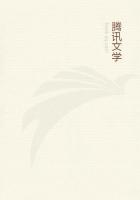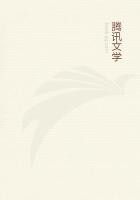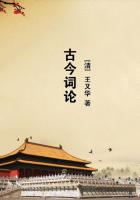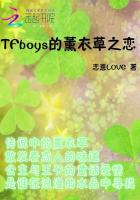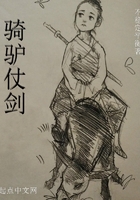To these two doubtful writings of Plato I have added the First Alcibiades, which, of all the disputed dialogues of Plato, has the greatest merit, and is somewhat longer than any of them, though not verified by the testimony of Aristotle, and in many respects at variance with the Symposium in the description of the relations of Socrates and Alcibiades. Like the Lesser Hippias and the Menexenus, it is to be compared to the earlier writings of Plato. The motive of the piece may, perhaps, be found in that passage of the Symposium in which Alcibiades describes himself as self-convicted by the words of Socrates. For the disparaging manner in which Schleiermacher has spoken of this dialogue there seems to be no sufficient foundation. At the same time, the lesson imparted is ******, and the irony more transparent than in the undoubted dialogues of Plato. We know, too, that Alcibiades was a favourite thesis, and that at least five or six dialogues bearing this name passed current in antiquity, and are attributed to contemporaries of Socrates and Plato. (1) In the entire absence of real external evidence (for the catalogues of the Alexandrian librarians cannot be regarded as trustworthy); and (2) in the absence of the highest marks either of poetical or philosophical excellence; and (3) considering that we have express testimony to the existence of contemporary writings bearing the name of Alcibiades, we are compelled to suspend our judgment on the genuineness of the extant dialogue.
Neither at this point, nor at any other, do we propose to draw an absolute line of demarcation between genuine and spurious writings of Plato. They fade off imperceptibly from one class to another. There may have been degrees of genuineness in the dialogues themselves, as there are certainly degrees of evidence by which they are supported. The traditions of the oral discourses both of Socrates and Plato may have formed the basis of semi-Platonic writings; some of them may be of the same mixed character which is apparent in Aristotle and Hippocrates, although the form of them is different. But the writings of Plato, unlike the writings of Aristotle, seem never to have been confused with the writings of his disciples: this was probably due to their definite form, and to their inimitable excellence. The three dialogues which we have offered in the Appendix to the criticism of the reader may be partly spurious and partly genuine; they may be altogether spurious;--that is an alternative which must be frankly admitted. Nor can we maintain of some other dialogues, such as the Parmenides, and the Sophist, and Politicus, that no considerable objection can be urged against them, though greatly overbalanced by the weight (chiefly) of internal evidence in their favour. Nor, on the other hand, can we exclude a bare possibility that some dialogues which are usually rejected, such as the Greater Hippias and the Cleitophon, may be genuine.
The nature and object of these semi-Platonic writings require more careful study and more comparison of them with one another, and with forged writings in general, than they have yet received, before we can finally decide on their character. We do not consider them all as genuine until they can be proved to be spurious, as is often maintained and still more often implied in this and similar discussions; but should say of some of them, that their genuineness is neither proven nor disproven until further evidence about them can be adduced. And we are as confident that the Epistles are spurious, as that the Republic, the Timaeus, and the Laws are genuine.
On the whole, not a twentieth part of the writings which pass under the name of Plato, if we exclude the works rejected by the ancients themselves and two or three other plausible inventions, can be fairly doubted by those who are willing to allow that a considerable change and growth may have taken place in his philosophy (see above). That twentieth debatable portion scarcely in any degree affects our judgment of Plato, either as a thinker or a writer, and though suggesting some interesting questions to the scholar and critic, is of little importance to the general reader.
ALCIBIADES I
byPlato (see Appendix I above)
Translated by Benjamin Jowett INTRODUCTION.
The First Alcibiades is a conversation between Socrates and Alcibiades.
Socrates is represented in the character which he attributes to himself in the Apology of a know-nothing who detects the conceit of knowledge in others. The two have met already in the Protagoras and in the Symposium;in the latter dialogue, as in this, the relation between them is that of a lover and his beloved. But the narrative of their loves is told differently in different places; for in the Symposium Alcibiades is depicted as the impassioned but rejected lover; here, as coldly receiving the advances of Socrates, who, for the best of purposes, lies in wait for the aspiring and ambitious youth.
Alcibiades, who is described as a very young man, is about to enter on public life, having an inordinate opinion of himself, and an extravagant ambition. Socrates, 'who knows what is in man,' astonishes him by a revelation of his designs. But has he the knowledge which is necessary for carrying them out? He is going to persuade the Athenians--about what? Not about any particular art, but about politics--when to fight and when to make peace. Now, men should fight and make peace on just grounds, and therefore the question of justice and injustice must enter into peace and war; and he who advises the Athenians must know the difference between them. Does Alcibiades know? If he does, he must either have been taught by some master, or he must have discovered the nature of them himself. If he has had a master, Socrates would like to be informed who he is, that he may go and learn of him also. Alcibiades admits that he has never learned.

